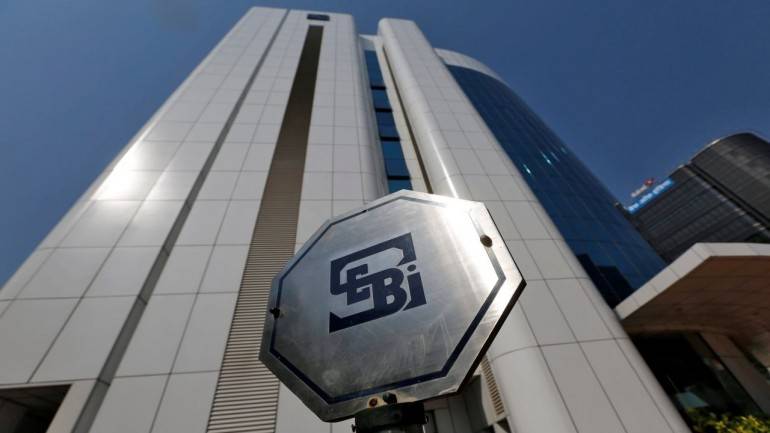The SEBI Employee Association (SEA) has written a letter to the Prime Minister’s Office (PMO) seeking revocation of the proposal, saying that it will affect the autonomy of the regulator and hamper its working and that of the securities market
The government’s Budget 2019 decision to seek transfer of excess funds from the coffers of SEBI seems to have not gone down well with officials of the market regulator, coming as the issue does whilst it has not been settled with the RBI yet.
The SEBI Employee Association (SEA) has written a letter to the Prime Minister’s Office (PMO) seeking revocation of the proposal, saying that it will affect the autonomy of the regulator and hamper its working and that of the securities market.
One of the clauses in the Budget 2019 Finance Bill proposes that SEBI board will “make a reserve fund and 25 percent of the annual surplus of the general fund should be credited in this reserve fund” subject to a maximum of two years’ total expenses. “After incurring all the expenses… and transfer to Reserve Fund… the surplus of the General Fund shall be transferred to the Consolidated Fund of India.”
The SEBI Act specifies that incomes (annual fees, subscriptions, interest on investments etc) of the regulator are to be credited to a General Fund, from which expenses (salaries, establishment etc) are to be paid. The surpluses, if at all, accrue to the General Fund. As of March 31, 2017, the last disclosed figure, the General Fund amounts to Rs 3,162.78 crore.
In their letter to PMO, however, SEBI employees dubbed the proposal as “regressive in nature” and against the spirit of the SEBI Act, 1992.
Moneycontrol has seen a copy of the letter.
The letter says the SEBI does not have any mandate to raise revenue for the government. “All the penalties levied by SEBI under the SEBI Act, 1992 already get credited to the CFI. SEBI generates its own funding through the levy of fee on market participants by following the principle that regulatory costs should be proportionately borne by those that contribute to the need for regulation or derive benefit from such regulation,” it says.
Effectively, SEBI employees believe that any move to transfer surplus funds of SEBI to the CFI amounts to the fee levied by SEBI becoming a kind of additional tax on market participants.
The letter adds that the move creates a perverse incentive for increasing such generation of revenue for the government, limiting the flexibility of SEBI to calibrate the imposition of such fees.
“Further, the proposal will also impinge on the financial autonomy of SEBI as it will have to seek government approval for capital expenditure, which can range from setting up IT infrastructure, expanding the organisational capacity, or any other physical and soft infrastructure that SEBI may require in the light of continuously evolving global securities markets to increasing its employee strength,” it says.
SEBI's Committee on Corporate Governance in its report submitted in 2017 highlighted the regulator’s staff shortage, comparing it with the US Securities and Exchange Commission (SEC), saying that while the US regulator has around one employee for each listed company, its Indian counterpart had one for six listed companies.
“The proposal would result in compromising SEBI’s autonomy and its ability to function effectively towards its stated objectives, and thus, hamper the progress of Indian securities markets,” the letter says. “Autonomy of a regulatory institution like SEBI is, therefore, critical as it insulates the institution from external compulsions and thus, provides long term continuity in its efforts towards achieving its objectives.”
“The regulator’s autonomy is an important parameter foreign investors take into account before deciding to invest,” a senior SEBI official told Moneycontrol.
Another senior official of the SEBI board added that the financials of the regulator are beyond reproach. The regulator is audited by the CAG, which has not once uncovered any instance of financial imprudence, according to the official.
“All major decisions of SEBI are taken with the board’s approval and views of the government are taken into account. A senior official of SEBI told Moneycontrol that two senior officers of ministry from Finance and Ministry of Corporate Affairs are part of board. And every spending decision has been passed by the SEBI board," the official said.
A third SEBI official told Moneycontrol that SEBI will not have more than Rs 1,000 crore to transfer to government, “which does not make any large impact in the government’s earnings”.
"It is strange that only SEBI has been singled out,” Advocate Deepak Sancheti, a former SEBI general manager told Moneycontrol. “A lot more deliberation is needed when legislating such humongous changes in the functioning of independent institutions, and these should not be hastily pushed through in this manner".
Writing in Moneycontrol earlier, Amol Agrawal, Assistant Professor at Ahmedabad University, argued that the proposal is not something not practised globally. “The Securities Exchange Commission, the capital market regulator of the US, also transfers its surplus to the government. However, it is odd that the government chooses to include all such amendments in the Finance Bill.”
The Finance Bill, being a Money Bill, is typically used to pass tax-related laws, is not voted upon by the Upper House, and proposals can go through with minimal discussion.
The government and the Reserve Bank of India were at odds last year on the issue of transfer of surplus funds. The government later appointed a committee under Bimal Jalan to work out a formula. The panel will table its report this month.
“Thankfully, the government has specified a rule for transfers from SEBI, which limits ad hoc transfers. It is these ad hoc transfers which lead to frictions between the regulator and the government,” wrote Agrawal.















